Coprophagia, or the habit of eating feces, is a behavior that many dog owners find both baffling and distressing. While this behavior can occur in any dog, certain breeds are more prone to it due to various factors, including their genetics, dietary needs, and environmental influences. Understanding why some breeds are more likely to engage in this behavior can help owners manage and potentially curb it. This article explores the nine dog breeds most likely to eat their own poop, detailing the reasons behind this behavior and what makes these breeds more susceptible to it. By recognizing the tendencies of these breeds, owners can take steps to mitigate the behavior and ensure their dogs lead healthier lives.
9. Labrador Retriever
Labrador Retrievers are known for their voracious appetites and tendency to eat almost anything, including non-food items. This breed’s predisposition to coprophagia can be attributed to their strong scavenging instincts and love for food. Labradors are highly food-motivated, which means they might see feces as a potential source of nutrients or simply as something interesting to consume. Their playful and curious nature also leads them to explore their environment with their mouths, increasing the likelihood of ingesting feces. Owners of Labrador Retrievers should provide ample mental and physical stimulation and ensure a balanced diet to help reduce this behavior.

8. Beagle
Beagles are another breed with a strong scavenging instinct, which makes them more prone to coprophagia. Bred as scent hounds, Beagles have an acute sense of smell and are always on the lookout for something interesting to sniff and eat. This natural inclination to follow their nose can lead them to feces, which they might consume out of curiosity or hunger. Beagles are also known for their high energy levels and need for mental stimulation. Ensuring that they have plenty of exercise and interactive toys can help distract them from this undesirable behavior. Regular training and supervision are essential for managing a Beagle’s tendency to eat feces.
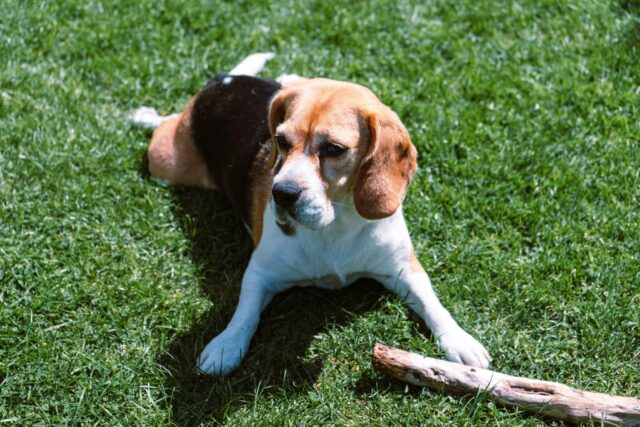
7. Basset Hound
Basset Hounds, like Beagles, are scent hounds with a strong instinct to explore their environment with their noses. This breed’s tendency to eat feces can be linked to their natural curiosity and desire to scavenge. Basset Hounds are also known for their slow metabolism and tendency to gain weight, which can make them more interested in eating anything they come across, including feces. Providing a well-balanced diet and ensuring that they get enough exercise can help manage this behavior. Additionally, regular cleaning of the yard and supervision during outdoor activities can prevent Basset Hounds from indulging in coprophagia.
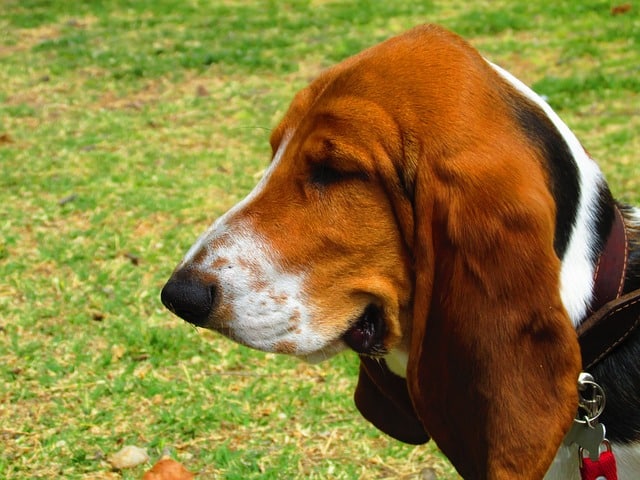
6. Poodle
Poodles, including Standard, Miniature, and Toy varieties, are highly intelligent and curious dogs. Their inquisitive nature can sometimes lead them to explore and eat feces. Poodles are also known for their sensitivity to dietary changes and digestive issues, which can make them more prone to coprophagia if they are not receiving the right nutrients. Ensuring that Poodles have a well-balanced diet and addressing any digestive concerns can help reduce this behavior. Providing plenty of mental stimulation and training can also keep their curious minds occupied and less likely to engage in undesirable activities like eating feces.
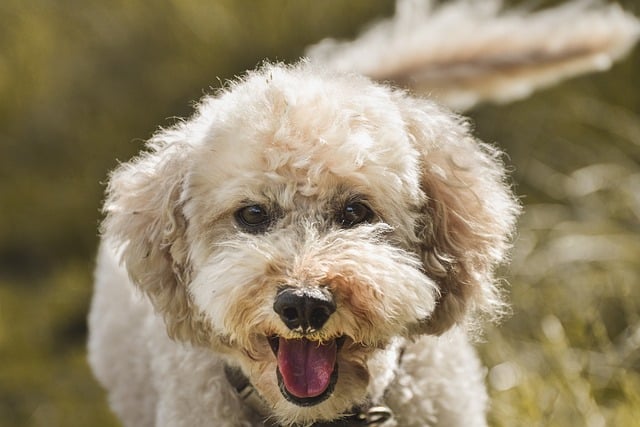
5. Jack Russell Terrier
Jack Russell Terriers are energetic and highly intelligent dogs with a strong prey drive. Their natural curiosity and high energy levels can lead them to engage in various behaviors, including coprophagia. Jack Russells are known for their independent and sometimes stubborn nature, which can make training a bit challenging. Consistent training, mental stimulation, and regular exercise are essential to keep these dogs occupied and prevent them from eating feces out of boredom or curiosity. Owners should also ensure that their Jack Russell Terriers have a balanced diet to address any potential nutritional deficiencies that might contribute to this behavior.
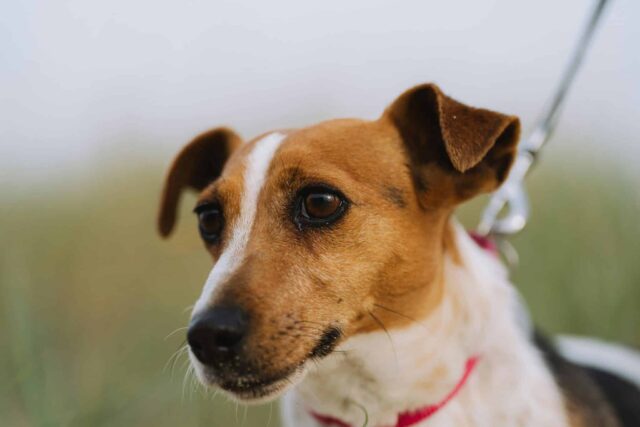
4. Cocker Spaniel
Cocker Spaniels are affectionate and intelligent dogs with a strong desire to please their owners. However, their curious nature and love for food can sometimes lead them to eat feces. Cocker Spaniels are known for their sensitivity to dietary changes and digestive issues, which can increase the likelihood of coprophagia. Providing a well-balanced diet and addressing any digestive concerns can help manage this behavior. Regular exercise, mental stimulation, and training are also important to keep Cocker Spaniels engaged and less likely to indulge in undesirable activities. Supervising outdoor activities and promptly cleaning up after them can further reduce the chances of coprophagia.
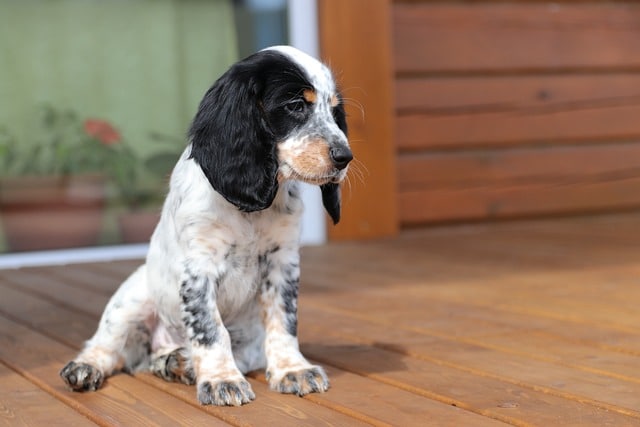
3. Border Collie
Border Collies are renowned for their intelligence and high energy levels. These traits make them excellent working dogs but also prone to behaviors driven by curiosity and a need for mental stimulation. Border Collies may engage in coprophagia out of boredom, especially if they do not receive enough physical and mental exercise. Ensuring that Border Collies have plenty of opportunities for activity and mental challenges can help reduce this behavior. A balanced diet and regular training are also essential for managing their tendency to eat feces. Keeping their environment clean and providing engaging toys can further discourage coprophagia.
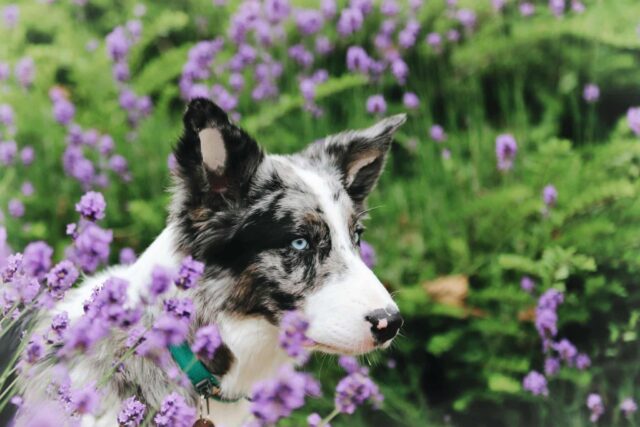
2. Shih Tzu
Shih Tzus are small, affectionate dogs that thrive on human companionship. However, their curious nature and sensitivity to dietary issues can sometimes lead them to eat feces. Shih Tzus may engage in coprophagia if they are not receiving the right nutrients or if they are left alone for extended periods. Providing a well-balanced diet and addressing any digestive concerns can help reduce this behavior. Ensuring that Shih Tzus receive plenty of attention, mental stimulation, and exercise is also important to prevent boredom-related coprophagia. Regular supervision and cleaning of their living environment can further discourage this behavior.
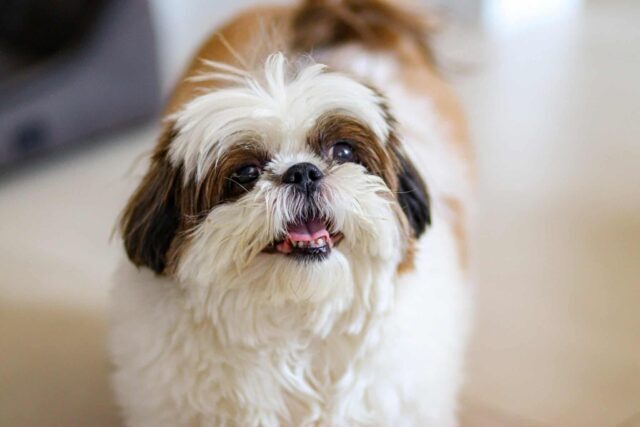
1. Dachshund
Dachshunds are known for their strong prey drive, curiosity, and independent nature. These traits, combined with their love for food, can make them more prone to coprophagia. Dachshunds may eat feces out of boredom, curiosity, or nutritional deficiencies. Providing a well-balanced diet and ensuring they receive enough exercise and mental stimulation can help manage this behavior. Dachshunds are also known for their stubbornness, so consistent training and supervision are essential to curb coprophagia. Keeping their environment clean and providing engaging activities can further reduce the likelihood of this undesirable behavior.

In conclusion, while coprophagia can be a concerning behavior for dog owners, understanding the breeds that are more prone to it and the reasons behind it can help manage and mitigate the issue. Each of the nine breeds listed here has unique traits that contribute to their likelihood of eating feces. By providing a balanced diet, ample mental and physical stimulation, and consistent training, owners can help their dogs overcome this behavior and lead healthier lives. Regular supervision and maintaining a clean living environment are also crucial in preventing coprophagia. With the right approach, owners can ensure that their dogs remain happy, healthy, and free from this undesirable habit.
 Toledo, United States.
Toledo, United States.